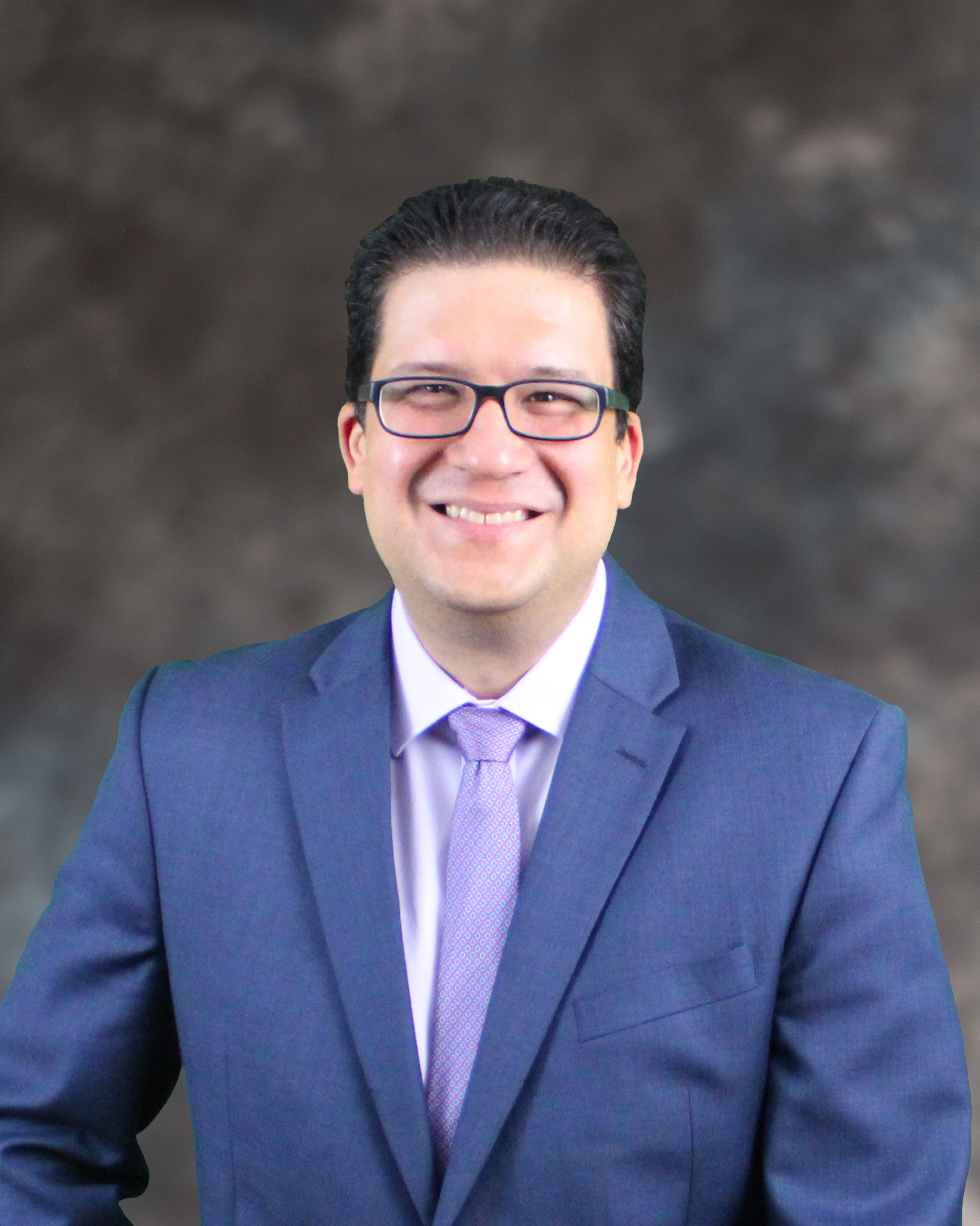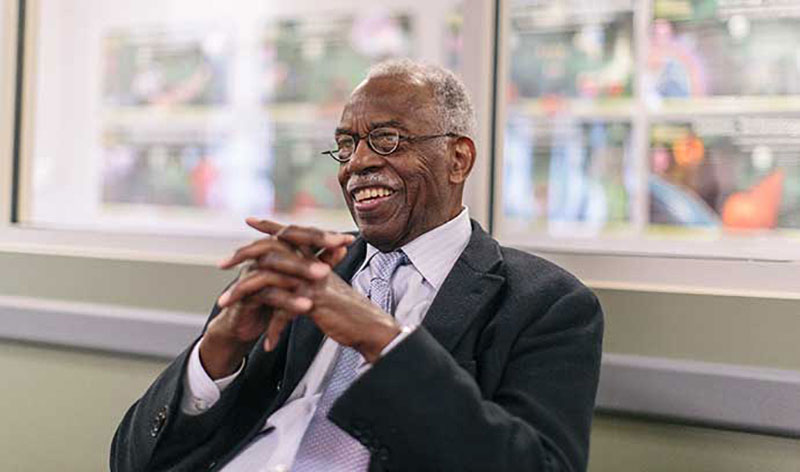Date: Wednesday, November 29, 2023
Time: 9:30-10:30AM
Location: Health Science Technology Building (HST), Forum Room 101
This event features Dr. Carlos M. Rinaldi-Ramos, as the Denson Distinguished Lecture, who will talk about "In Vivo Quantitative Tracking of Immune Cell Therapies Using Magnetic Particle Imaging", as part of the Lehigh University Chemical and Biomolecular Engineering's Fall 2023 Colloquium Seminar Series.
Abstract
Immunotherapies based on modification, expansion, and administration of autologous immune cells have shown promise in cancer therapy, with clinical approval of chimeric antigen receptor T (CAR-T) cell therapy, and are being developed for other conditions, such as autoimmune and neurodegenerative diseases. In these settings, quantitative monitoring of immune cell biodistribution can provide important insight during development, can help monitor patients for potential side effects due to accumulation of therapeutic cells in off-target locations, and can have prognostic value. For example, clinical data suggests that early accumulation of T cells at the tumor is predictive of therapeutic outcome in tumor infiltrating lymphocyte (TIL) cancer immunotherapy. Unfortunately, clinically translated imaging technologies suffer limitations in the context of quantitative whole-body longitudinal immune cell tracking. For example, tracking immune cells using positron emission tomography (PET), the gold standard for sensitive molecular imaging, either requires genetic modification or ex vivo labeling with large amounts of radioisotopes, resulting in sensitivity-limitin toxicity. Magnetic resonance imaging (MRI) of cells labeled with superparamagnetic iron oxide nanoparticles (SPIONs) has been pursued for decades with some success, but is limited by the negative image contrast, poor sensitivity, and semi-quantitative nature of SPION contrast in MRI. Therefore, novel imaging approaches that allow for unambiguous, quantitative, high-sensitivity, longitudinal tracking of immune cell biodistribution are needed. Magnetic Particle Imaging (MPI) is a new molecular imaging technology capable of unambiguous and quantitative tomographic imaging of the distribution of superparamagnetic nanoparticle tracers in vivo.
Image generation in MPI relies on distinct physics from that in MRI. In MPI, a tomographic image of the distribution of superparamagnetic nanoparticles is constructed by scanning a so-called field free region (FFR) through the domain of interest. Outside the FFR there is a quasi-static bias field strong enough to saturate the magnetic moments of the nanoparticles. In contrast, inside the FFR the dipole moments of the nanoparticles can respond to the alternating excitation field. The signal used to
construct an image in MPI arises due to the non-linear dynamic magnetization response of the nanoparticle dipole moments to the excitation field inside the FFR. At the field amplitudes and frequencies used in MPI there is no appreciable attenuation in field or signal strength in tissue. Further, while there are magnetic species in the body (e.g., ferritin), they do not contribute an appreciable signal for MPI, allowing for unambiguous imaging of the biodistribution of one of the superparamagnetic nanoparticle tracers. In this talk I will explain the physics of image generation in MPI, discuss work to understand how imaging performance relates to physical and magnetic properties of the nanoparticles, and discuss our work developing tracers and using MPI to quantify biodistribution of immune cell therapies.
About the Speaker
Carlos M. Rinaldi-Ramos is the Chair and Dean’s Leadership Professor in the Department of Chemical Engineering and Professor in the J. Crayton Pruitt Family Department of Biomedical Engineering at the University of Florida. He received his bachelor’s degree in Chemical Engineering at the University of Puerto Rico, Mayagüez, and completed degrees in Master of Science in Chemical Engineering, Master of Science in Chemical Engineering Practice, and Doctor of Philosophy in Chemical Engineering at the Massachusetts Institute of Technology. Prior to the University of Florida, Dr. Rinaldi-Ramos was a Professor in the Department of Chemical Engineering at the University of Puerto Rico, Mayagüez (UPRM). Dr. Rinaldi-Ramos’s research spans synthesis and characterization of magnetic nanoparticles for biomedical applications and evaluation of nanoparticle transport and diffusion in biological fluids. Current efforts focus on developing tracers for magnetic particle imaging (MPI), an exciting new biomedical imaging modality that allows for non-invasive, unambiguous, and quantitative imaging of the in vivo distribution of superparamagnetic iron oxide nanoparticle tracers.
History of Costel 'Cos' Denson
Dr. Costel ’Cos' Denson (1934-2018), was the first African-American student to graduate from Lehigh. He earned his B.S. degree in chemical engineering from the university in 1956 and his master’s degree in chemical engineering from Rensselaer Polytechnic Institute in 1960. He earned his Ph.D. in chemical engineering from the University of Utah in 1965.
After a long and successful career at General Electric, Denson joined the faculty at the University of Delaware, serving as professor of chemical engineering, interim dean of engineering, and vice provost for research. He also was a visiting professor at the University of California at Berkeley, the University of Naples, and Lehigh University. Denson served on numerous environmental advisory boards including the U.S. Department of Defense: Scientific Advisory Board, and the U.S. Environmental Protection Agency. He served as a member of many professional societies, including the American Institute of Chemical Engineers and the Society of Rheology. He served on the executive committee of the Society of Plastics Engineers and was a member of a National Science Foundation panel judging proposals in the area of math, sciences and technology education.
Dr. Denson launched two companies based on technology he developed. He served as the managing member of Costech Technologies, LLC, and a company that advised on environmental research programs. His many honors include Honorary Doctoral Degree in 2015 from Lehigh University, the Thomas H. Chilton Award of the Wilmington section of the American Institute of Chemical Engineers and the International Award for Research of the Society of plastics Engineers. In 2017 Lehigh University created in his honor “The Dr. Costel Denson ‘56 Alumni Award” to be awarded annually to a Lehigh alumnus who has demonstrated leadership by proactively seeking to identify and implement pathways to increase diversity in the American workplace and in our educational institutions.
Department/Program:


